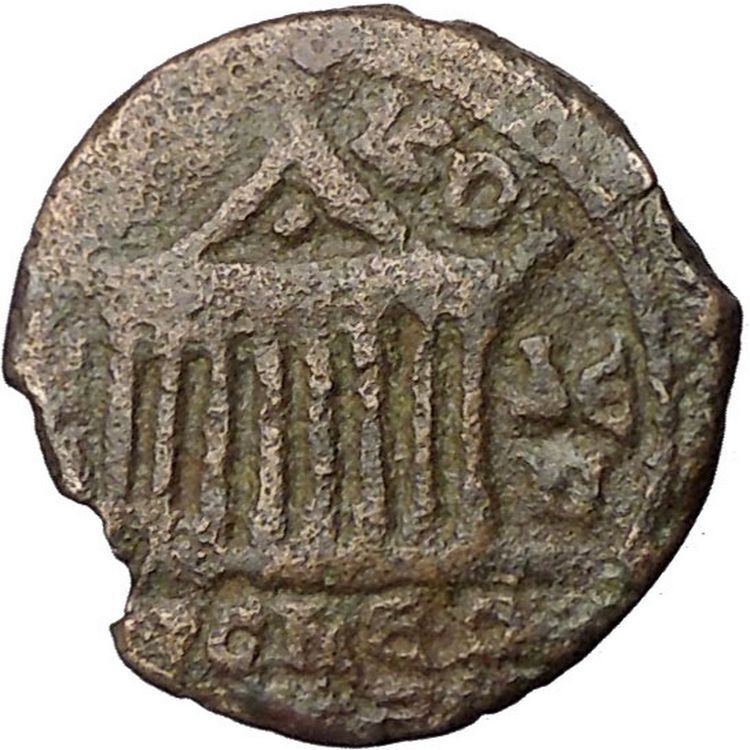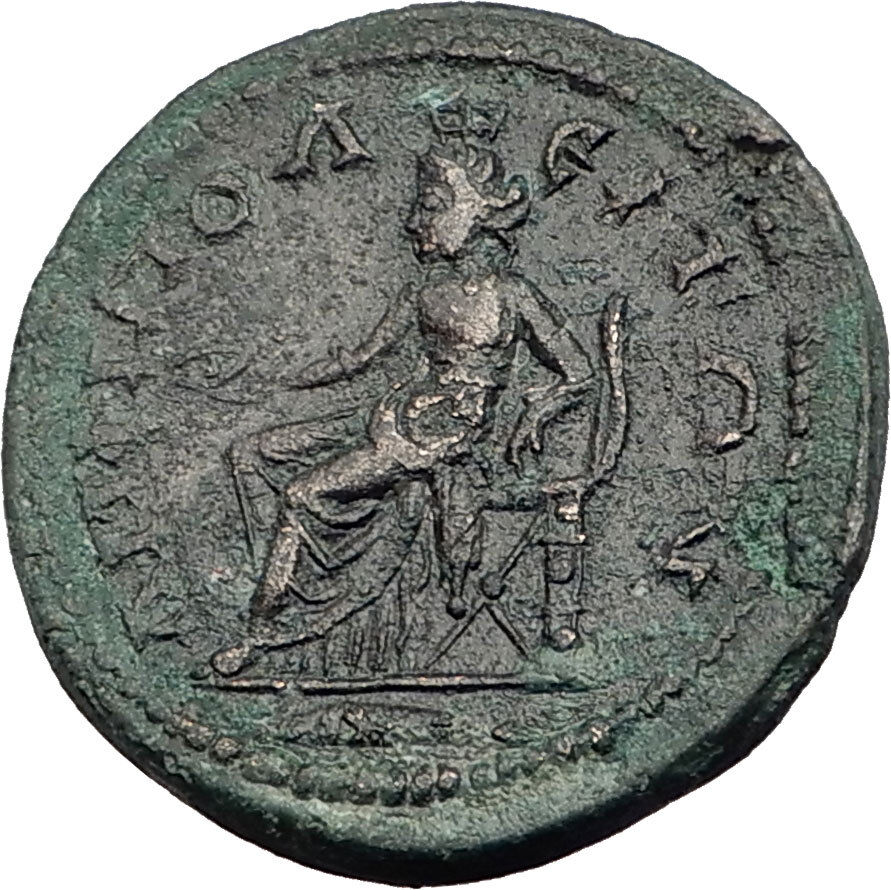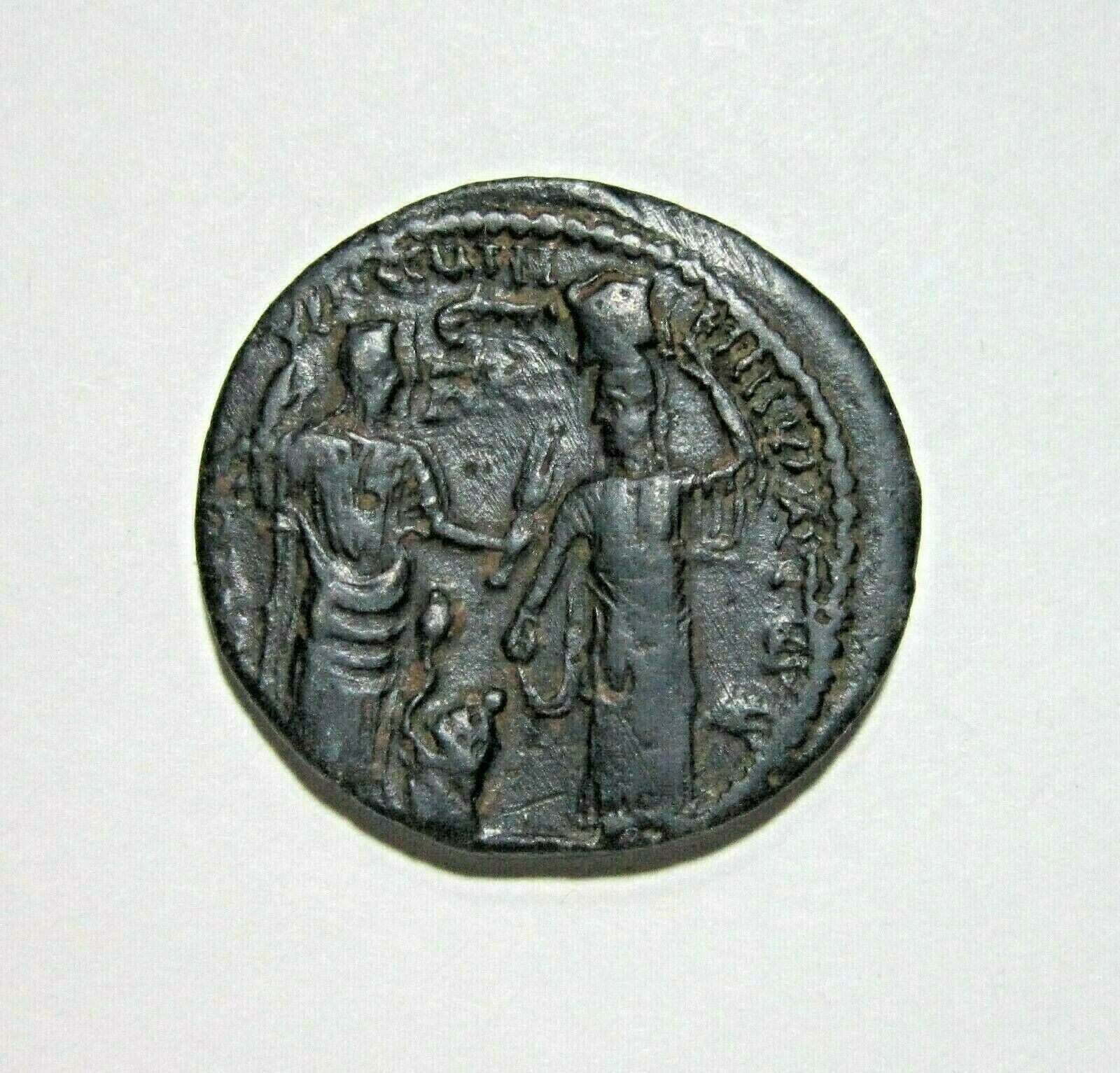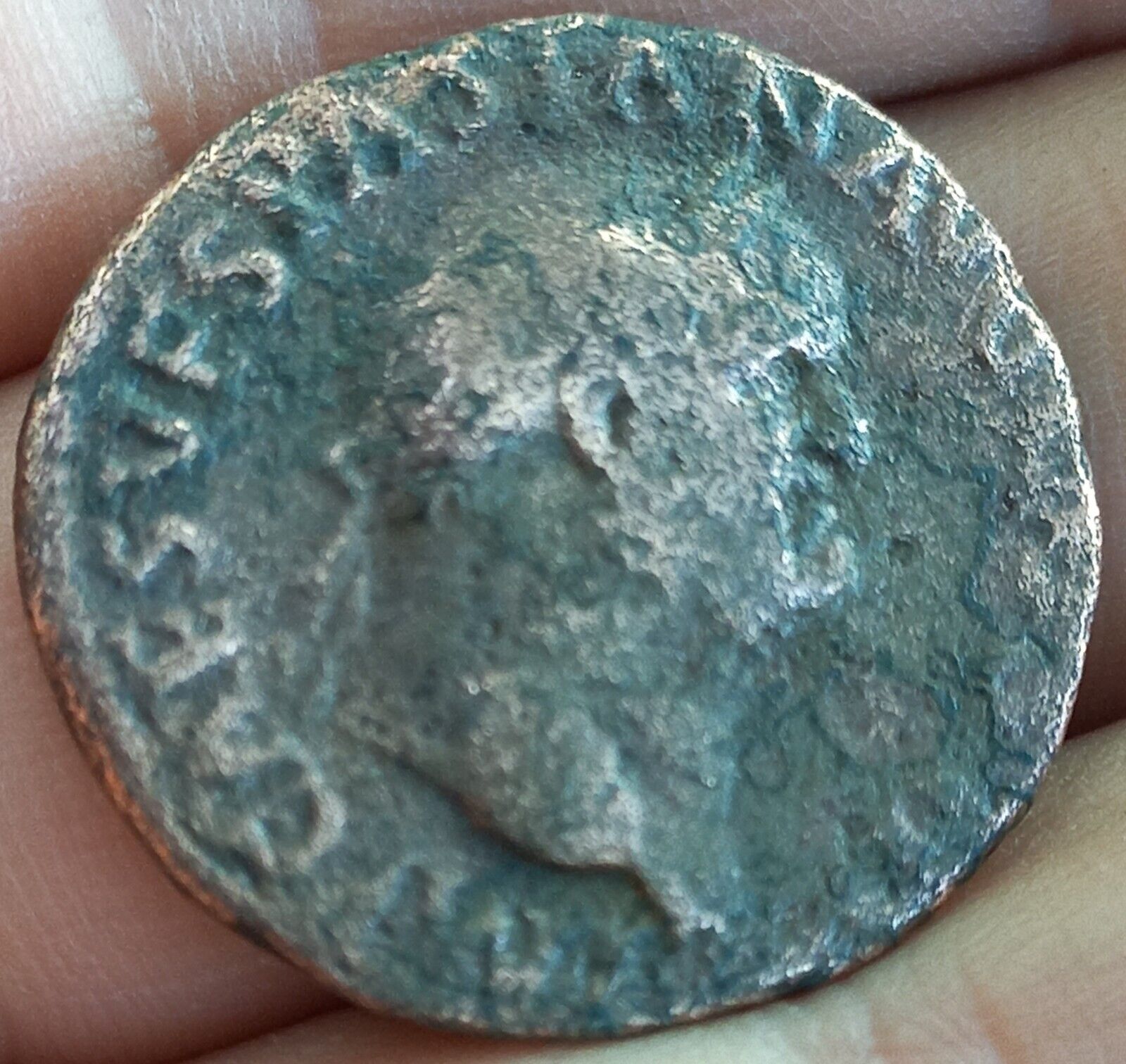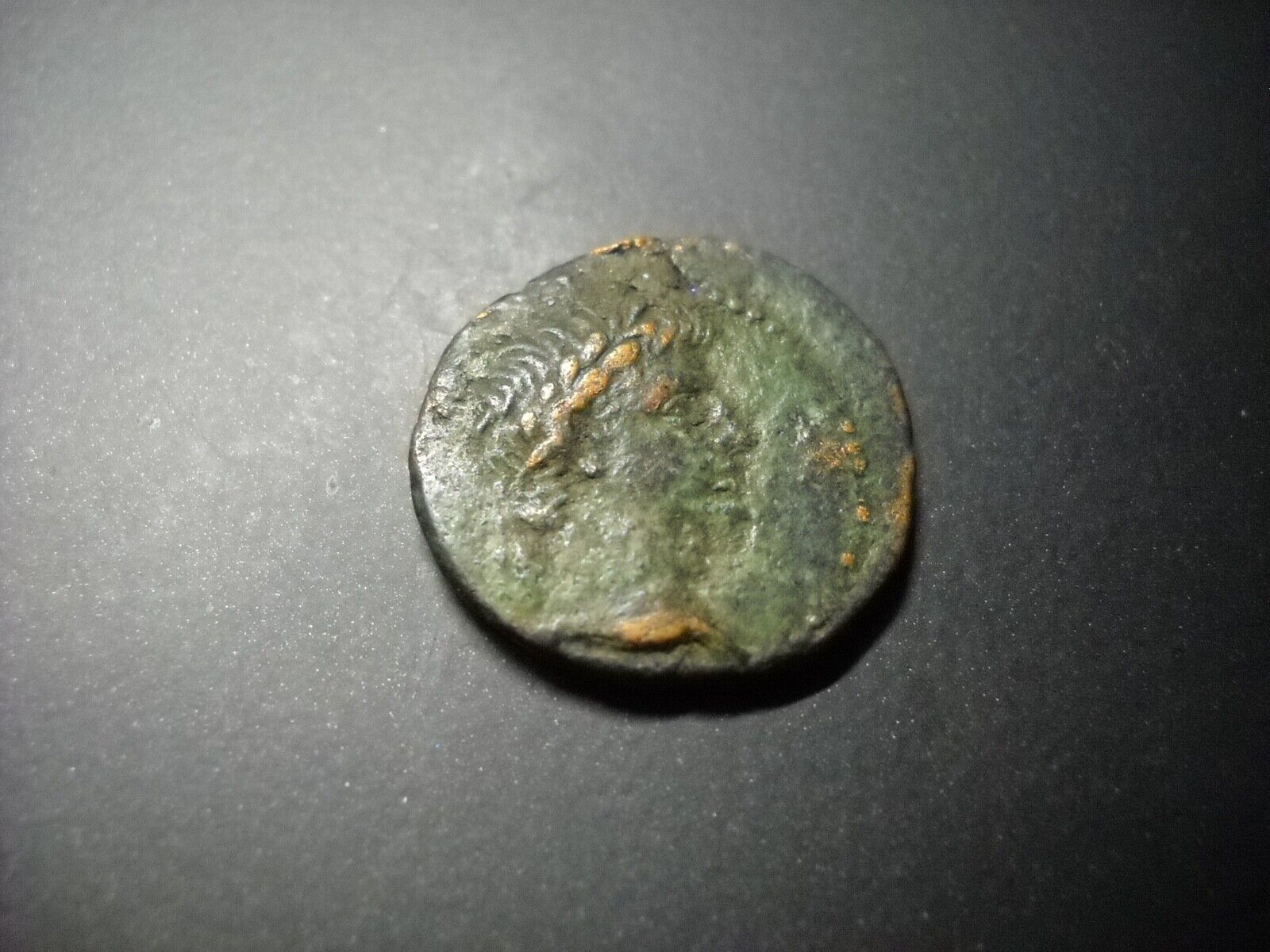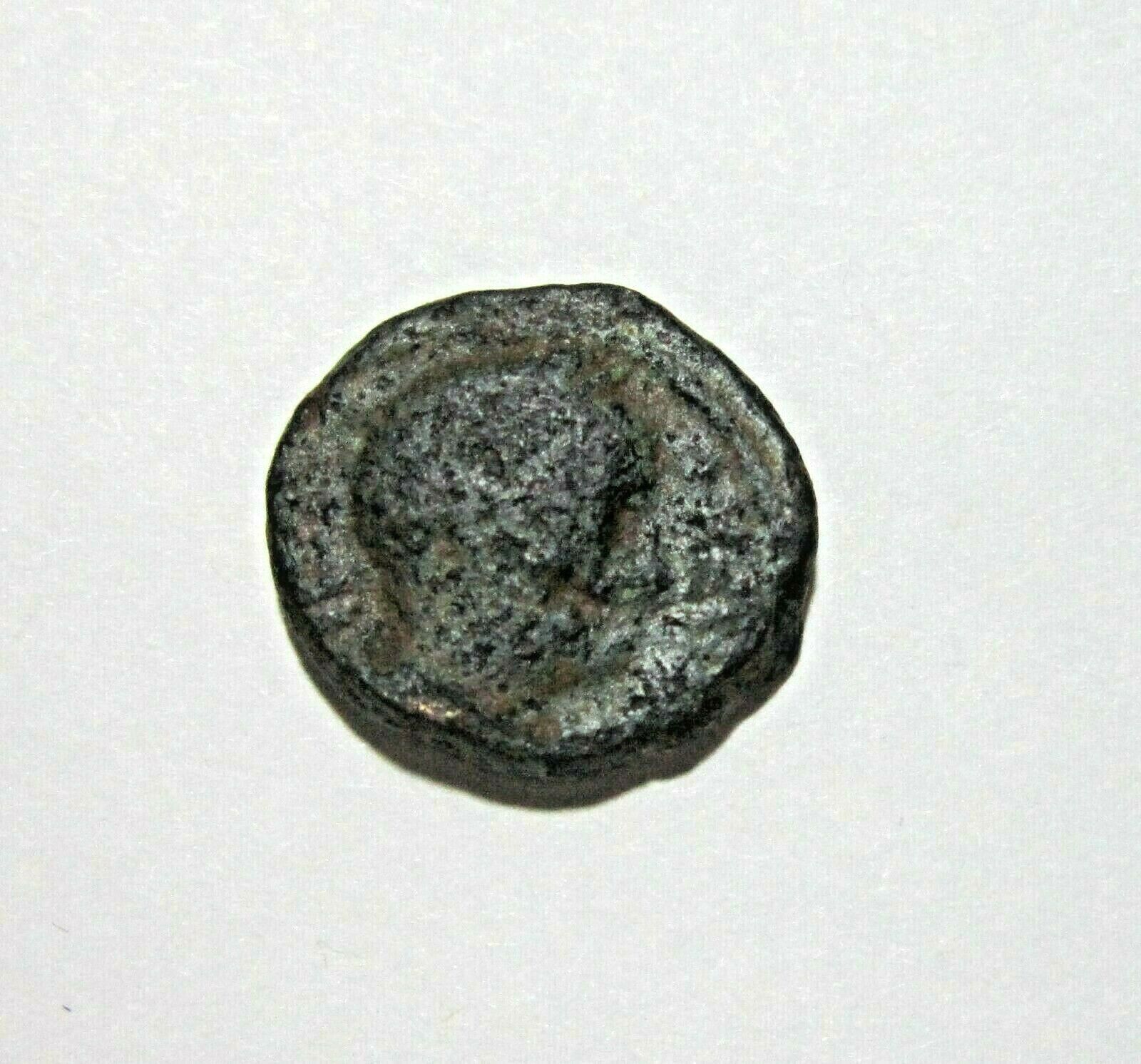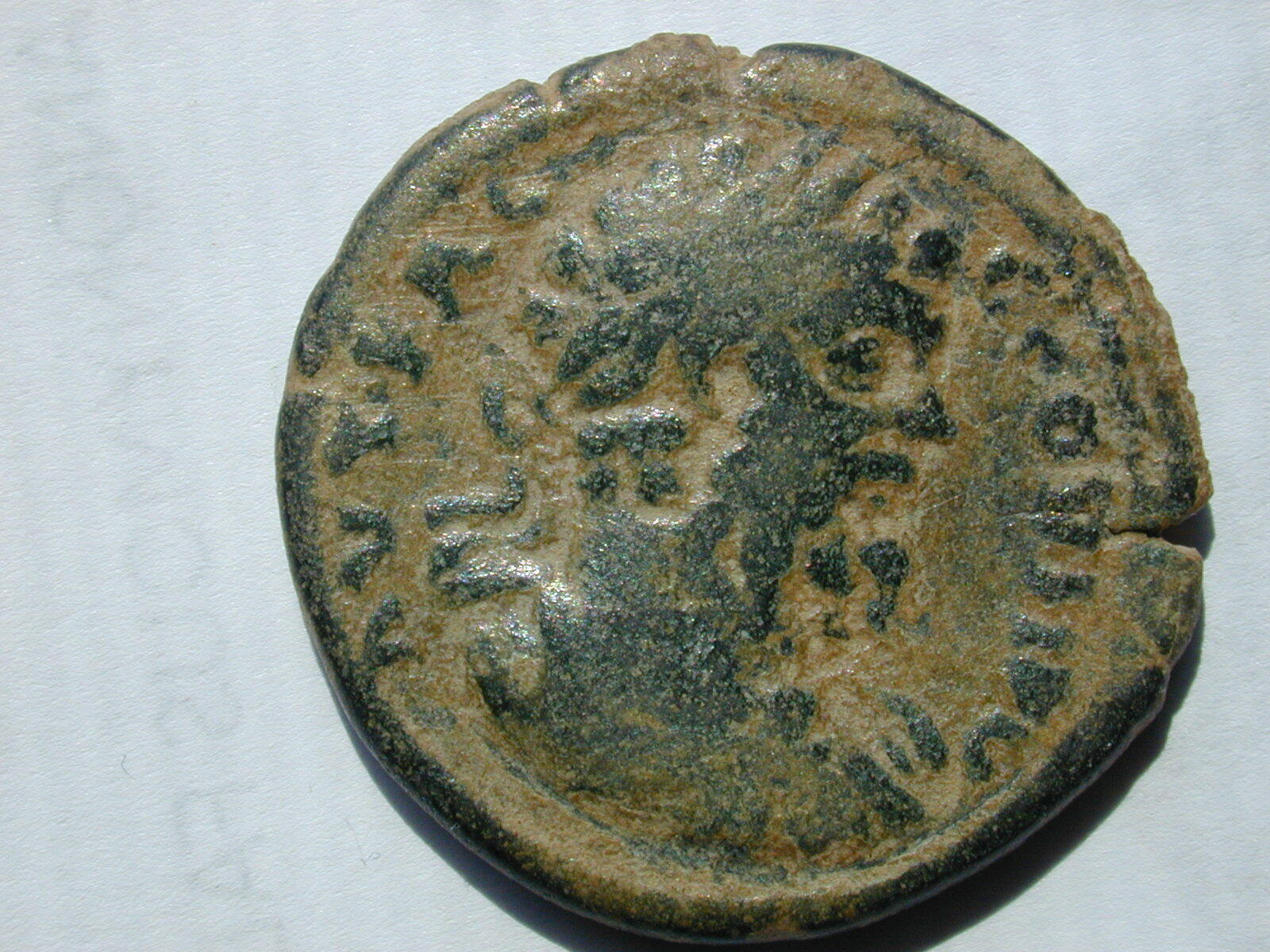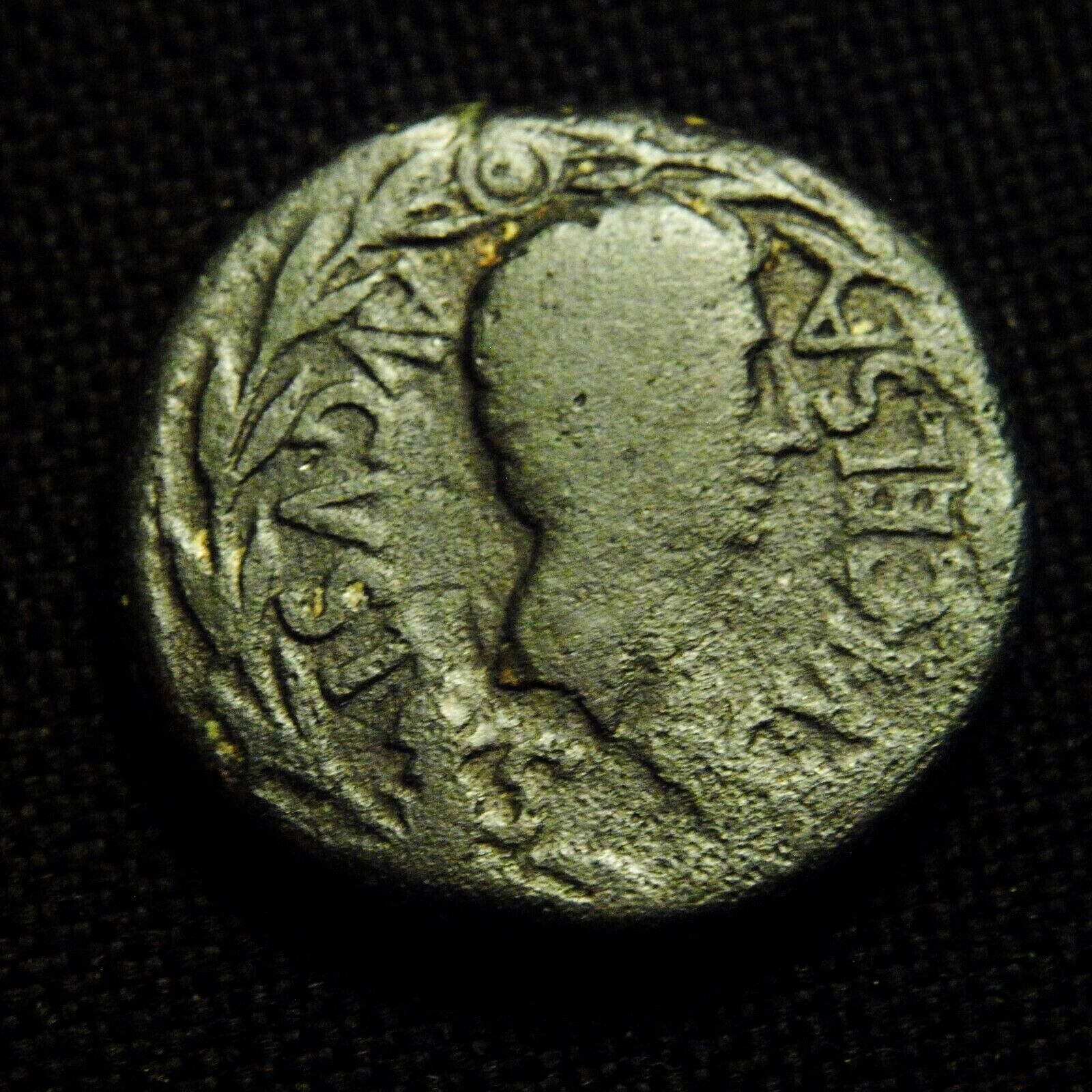-40%
SEVERUS ALEXANDER 222AD Nicomedia Bithynia TEMPLE Ancient Roman Coin i48743
$ 73.92
- Description
- Size Guide
Description
Item:i48743
Authentic Ancient Coin of:
Severus Alexander
-
Roman Emperor
: 222-235 A.D.
Bronze 19mm (3.68 grams) of
<="" font="" color="#000000" face="Times New Roman"> Nicomedia
<="" font="" color="#000000" face="Times New Roman"> in Bithynia [
Description
]
Reference: RG 325 (bust type); SNG von Aulock SNG Copenhagen 576 var. (same)
. Laureate and cuirassed bust right, slight drapery on far shoulder.
NIKOMHΔEΩN ΔIC NEΩK, Octastyle temple with circle in pediment.
You are bidding on the exact item pictured, provided with a Certificate of Authenticity and Lifetime Guarantee of Authenticity.
Nicomedia
(
Greek
:
Νικομήδεια
,
Nikomedeia
; modern
İzmit
) was an ancient city in what is now
Turkey
, founded in 712/11 BC as a
Megarian
colony and was originally known as
Astacus
(
/
s
æ
s
t
ə
k
ə
ˈ
/
;
Ancient Greek
: Ἀστακός, "lobster"). After being destroyed by
Lysimachus
, it was rebuilt by
Nicomedes I of Bithynia
in 264 BC under the name of Nicomedia, and has ever since been one of the most important cities in northwestern
Asia Minor
. The great military commander
Hannibal Barca
came to Nicomedia in his final years and committed suicide in nearby Libyssa (
Diliskelesi
,
Gebze
). The historian
Arrian
was born there.
Nicomedia was the
metropolis
of
Bithynia
under the
Roman Empire
, and
Diocletian
made it the eastern capital city of the Roman Empire in 286 when he introduced the
Tetrarchy
system. Nicomedia remained as the eastern (and most senior) capital of the Roman Empire until co-emperor
Licinius
was defeated by
Constantine the Great
at the
Battle of Chrysopolis
(
Üsküdar
) in 324. Constantine mainly resided in Nicomedia as his interim capital city for the next six years, until in 330 he declared the nearby
Byzantium
(which was renamed
Constantinople
) the new capital. Constantine died in a royal villa in the vicinity of Nicomedia in 337. Owing to its position at the convergence of the Asiatic roads leading to the new capital, Nicomedia retained its importance even after the foundation of Constantinople.
A major earthquake, however, on 24 August 358, caused extensive devastation to Nicomedia, and was followed by a fire which completed the catastrophe. Nicomedia was rebuilt, but on a smaller scale. In the sixth century under Emperor
Justinian I
the city was extended with new public buildings. Situated on the roads leading to the capital, the city remained a major military center, playing an important role in the Byzantine campaigns against the
Caliphate
.
In 451, the local bishopric was promoted to a
Metropolitan see
under the jurisdiction of the
Ecumenical Patriarchate of Constantinople
. The metropolis of Nicomedia was ranked 7th in the
Notitiae Episcopatuum
among the metropolises of the Patriarchate. From the 840s on, Nicomedia was the capital of the
thema
of the
Optimatoi
. By that time, most of the old, seawards city had been abandoned and is described by the Persian geographer
Ibn Khurdadhbih
as lying in ruins. The settlement had obviously been restricted to the hilltop citadel. In the 1080s, the city served as the main military base for
Alexios I Komnenos
in his campaigns against the
Seljuk Turks
, and the
First
and
Second
Crusades both encamped there.
The city was briefly held by the
Latin Empire
following the
fall of Constantinople
to the
Fourth Crusade
in 1204: in late 1206 the
seneschal
Dietrich von Los
made it his base, converting the church of Saint Sophia into a fortress; however the Crusader stronghold was subjected to constant raids by the
Emperor of Nicaea
Theodore I Laskaris
, during which von Los was captured by Nicaean soldiers; by the summer of 1207 Emperor
Henry of Flanders
to agreed to evacuate Nicomedia in exchange for von Los and other prisoners Emperor Theodore held. The city remained in Byzantine control for over a century after that, but following the Byzantine defeat at the
Battle of Bapheus
in 1302, it was threatened by the rising
Ottoman beylik
. The city was twice blockaded by the Ottomans (in 1304 and 1330) before finally succumbing in 1337.
Notable natives and residents
Saint Panteleimon
Adrian of Nicomedia
Anthimus of Nicomedia
Arrian
(Lucius Flavius Arrianus 'Xenophon')
Juliana of Nicomedia
Michael Psellos
(11th century) Greek writer, philosopher, politician, and historian
Maximus Planudes
(13th century) Greek scholar, anthologist, translator and grammarian
Saint Barbara
Saint George
Theopemptus of Nicomedia
Diocletian
Theophylact of Nicomedia
See also
20,000 Martyrs of Nicomedia
Nicaea
(present-day
İznik
, another important city in
Bithynia
, and the interim
Byzantine
capital city between 1204 and 1261 (
Empire of Nicaea
) following the
Fourth Crusade
in 1204, until the recapture of
Constantinople
by the Byzantines in 1261. Earlier, the site of the
Nicene Creed
as well as the
First Council of Nicaea
and
Second Council of Nicaea
.)
SEVERUS ALEXANDER
Augustus:
A.D. 222-235
Caesar:
A.D. 221-222 under Elagabalus
Son of Julia Mamaea
Husband of Orbiana
Grandson of Julia Maesa
Nephew of Julia Soaemias
Cousin of Elagabalus
Second-cousin of Caracalla and Geta
Great-newphew of Septimius Severus and Julia Domna
Marcus Aurelius Severus Alexander
(October 1, 208–March 18, 235 AD), commonly called
Alexander Severus
, was the last
Roman emperor
(11 March 222–235) of the
Severan dynasty
. Alexander Severus succeeded his cousin,
Elagabalus
upon the latter's assassination in 222 AD, and was ultimately assassinated himself, marking the
epoch event
for the
Crisis of the Third Century
—nearly fifty years of disorder, Roman civil wars, economic chaos, regional rebellions, and external threats that brought the Empire to near-collapse.
Alexander Severus was the
heir apparent
to his cousin, the eighteen-year-old Emperor who had been murdered along with his mother by his own guards—and as a mark of contempt, had their remains cast into the
Tiber river
. He and his cousin were both grandsons of the influential and powerful
Julia Maesa
, who had arranged for Elagabalus' acclamation as Emperor by the famed
Third Gallic Legion
.
A rumor of Alexander's death circulated, triggering the assassination of Elagabalus.
Alexander's reign was marked by troubles. In military conflict against the rising
Sassanid Empire
, there are mixed accounts, though the Sassanid threat was checked. However, when campaigning against
Germanic tribes
of
Germania
, Alexander Severus apparently alienated his legions by trying diplomacy and bribery, and they assassinated him.
Life
Alexander was born with the name
Marcus Julius Gessius Bassianus Alexianus
. Alexander's father,
Marcus Julius Gessius Marcianus
was a Syrian
Promagistrate
. His mother
Julia Avita Mamaea
was the second daughter of
Julia Maesa
and Syrian noble
Julius Avitus
and maternal aunt of Emperor
Elagabalus
. He had an elder sister called Theoclia and little is known about her. Alexander's maternal great-aunt was empress
Julia Domna
(also Maesa's younger sister) and his great-uncle in marriage was emperor Lucius
Septimius Severus
. Emperors
Caracalla
and
Publius Septimius Geta
, were his mother's maternal cousins. In 221, Alexander's grandmother, Maesa, persuaded the emperor to adopt his cousin as successor and make him
Caesar
and Bassianus changed his name to Alexander. In the following year, on March 11, Elagabalus was murdered, and Alexander was proclaimed emperor by the
Praetorians
and accepted by the Senate.
When Alexander became emperor, he was young, amiable, well-meaning, and entirely under the dominion of his mother. Julia Mamaea was a woman of many virtues, and she surrounded the young emperor with wise counsellors. She watched over the development of her son's character and improved the tone of the administration. On the other hand, she was inordinately jealous. She also alienated the army by extreme parsimony, and neither she nor her son were strong enough to impose military discipline. Mutinies became frequent in all parts of the empire; to one of them the life of the jurist and praetorian praefect
Ulpian
was sacrificed; another compelled the retirement of
Cassius Dio
from his command.
On the whole, however, the reign of Alexander was prosperous until the rise, in the east, of the
Sassanids
. Of the war that followed there are various accounts. (
Mommsen
leans to that which is least favourable to the Romans). According to Alexander's own dispatch to the senate, he gained great victories. At all events, though the Sassanids were checked for the time, the conduct of the Roman army showed an extraordinary lack of discipline. The emperor returned to
Rome
and celebrated a triumph in 233.
The following year he was called to face German invaders in
Gaul
, who had breached the Rhine frontier in several places, destroying forts and over-running the countryside. Alexander mustered his forces, bringing legions from the eastern provinces, and crossed the Rhine into Germany on a pontoon bridge. Initially he attempted to buy the German tribes off, so as to gain time. Whether this was a wise policy or not, it caused the Roman legionaries to look down on their emperor as one who was prepared to commit unsoldierly conduct.
Herodian
says "in their opinion Alexander showed no honourable intention to pursue the war and preferred a life of ease, when he should have marched out to punish the Germans for their previous insolence". These circumstances drove the army to look for a new leader. They chose
Gaius Iulius Verus Maximinus
, a Thracian soldier who had worked his way up through the ranks.
Following the nomination of Maximinus as emperor, Alexander was slain (on either March 18 or March 19, 235), together with his mother, in a mutiny of the
Primigenia
Legio XXII
. These assassinations secured the throne for Maximinus.
The death of Alexander is considered as the end of the
Principate
system established by
Augustus
. Although the
Principate
continued in theory until the reign of
Diocletian
, Alexander Severus' death signalled the beginning of the chaotic period known as the
Crisis of the Third Century
which weakened the empire considerably.
Legacy
Alexander was the last of the Syrian emperors. Under the influence of his mother, he did much to improve the morals and condition of the people. His advisers were men like the famous jurist Ulpian, the historian Cassius Dio and a select board of sixteen senators; a municipal council of fourteen assisted the urban praefect in administering the affairs of the fourteen districts of Rome. The luxury and extravagance that had formerly been so prevalent at the court were put down; the standard of the coinage was raised; taxes were lightened; literature, art and science were encouraged; the lot of the soldiers was improved; and, for the convenience of the people, loan offices were instituted for lending money at a moderate rate of interest.
In religious matters Alexander preserved an open mind. It is said that he was desirous of erecting a temple to the
founder of Christianity
, but was dissuaded by the pagan priests.
Marriage
Alexander was married three times. His most famous wife was
Sallustia Orbiana
,
Augusta
,
whom he married in 225. He divorced and exiled her in 227, after her father,
Seius Sallustius
, was executed for attempting to assassinate the emperor. Another wife was Sulpicia Memmia. Her father was a man of consular rank; her grandfather's name was
Catulus
.
="">="">
Frequently Asked Questions
How long until my order is shipped?
Depending on the volume of sales, it may take up to 5 business days for shipment of your order after the receipt of payment.
How will I know when the order was shipped?
After your order has shipped, you will be left positive feedback, and that date should be used as a basis of estimating an arrival date.
After you shipped the order, how long will the mail take?
USPS First Class mail takes about 3-5 business days to arrive in the U.S., international shipping times cannot be estimated as they vary from country to country. I am not responsible for any USPS delivery delays, especially for an international package.
What is a certificate of authenticity and what guarantees do you give that the item is authentic?
Each of the items sold here, is provided with a Certificate of Authenticity, and a Lifetime Guarantee of Authenticity, issued by a world-renowned numismatic and antique expert that has identified over 10000 ancient coins and has provided them with the same guarantee. You will be quite happy with what you get with the COA; a professional presentation of the coin, with all of the relevant information and a picture of the coin you saw in the listing.
Compared to other certification companies, the certificate of authenticity is a -50 value. So buy a coin today and own a piece of history, guaranteed.
Is there a money back guarantee?
I offer a 30 day unconditional money back guarantee. I stand behind my coins and would be willing to exchange your order for either store credit towards other coins, or refund, minus shipping expenses, within 30 days from the receipt of your order. My goal is to have the returning customers for a lifetime, and I am so sure in my coins, their authenticity, numismatic value and beauty, I can offer such a guarantee.
Is there a number I can call you with questions about my order?
You can contact me directly via ask seller a question and request my telephone number, or go to my About Me Page to get my contact information only in regards to items purchased on eBay.
When should I leave feedback?
Once you receive your order, please leave a positive. Please don't leave any negative feedbacks, as it happens many times that people rush to leave feedback before letting sufficient time for the order to arrive. Also, if you sent an email, make sure to check for my reply in your messages before claiming that you didn't receive a response. The matter of fact is that any issues can be resolved, as reputation is most important to me. My goal is to provide superior products and quality of service.
